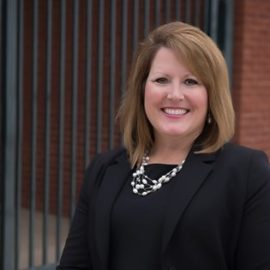PPP Loans – Need to: Document, Document, Document
briefing by Kimberly Ripberger, CPA
On April 23, 2020, the U.S. Department of the Treasury issued Question 31 on its Frequently Asked Questions (“FAQ”) related to the Small Business Administration’s (“SBA”) Paycheck Protection Program (“PPP”) Loan Program. Question 31 has remained a “hot topic” from the ongoing media attention focusing on several public companies that received PPP Loans.
FAQ Question 31 and the corresponding answer is listed below, along with follow up Questions 37, 43, 46 and 47 issued April 28, 2020, May 5, 2020, and May 13, 2020, respectively.
- Question: Do businesses owned by large companies with adequate sources of liquidity to support the business’s ongoing operations qualify for a PPP loan?
Answer: In addition to reviewing applicable affiliation rules to determine eligibility, all borrowers must assess their economic need for a PPP loan under the standard established by the CARES Act and the PPP regulations at the time of the loan application. Although the CARES Act suspends the ordinary requirement that borrowers must be unable to obtain credit elsewhere (as defined in section 3(h) of the Small Business Act), borrowers still must certify in good faith that their PPP loan request is necessary. Specifically, before submitting a PPP application, all borrowers should review carefully the required certification that “[c]urrent economic uncertainty makes this loan request necessary to support the ongoing operations of the Applicant.” Borrowers must make this certification in good faith, taking into account their current business activity and their ability to access other sources of liquidity sufficient to support their ongoing operations in a manner that is not significantly detrimental to the business. For example, it is unlikely that a public company with substantial market value and access to capital markets will be able to make the required certification in good faith, and such a company should be prepared to demonstrate to SBA, upon request, the basis for its certification.
Lenders may rely on a borrower’s certification regarding the necessity of the loan request. Any borrower that applied for a PPP loan prior to the issuance of this guidance and repays the loan in full by May 7, 2020 will be deemed by SBA to have made the required certification in good faith.
- Question: Do businesses owned by private companies with adequate sources of liquidity to support the business’s ongoing operations qualify for a PPP loan?
Answer: See response to FAQ #31.
- 43. Question: FAQ #31 reminded borrowers to review carefully the required certification on the Borrower Application Form that “[c]urrent economic uncertainty makes this loan request necessary to support the ongoing operations of the Applicant.” SBA guidance and regulations provide that any borrower who applied for a PPP loan prior to April 24, 2020 and repays the loan in full by May 7, 2020 will be deemed by SBA to have made the required certification in good faith. Is it possible for a borrower to obtain an extension of the May 7, 2020 repayment date?
Answer: SBA is extending the repayment date for this safe harbor to May 14, 2020. Borrowers do not need to apply for this extension. This extension will be promptly implemented through a revision to the SBA’s interim final rule providing the safe harbor. SBA intends to provide additional guidance on how it will review the certification prior to May 14, 2020.
- Question: How will SBA review borrowers’ required good-faith certification concerning the necessity of their loan request?
Answer: When submitting a PPP application, all borrowers must certify in good faith that “[c]urrent economic uncertainty makes this loan request necessary to support the ongoing operations of the Applicant.” SBA, in consultation with the Department of the Treasury, has determined that the following safe harbor will apply to SBA’s review of PPP loans with respect to this issue: Any borrower that, together with its affiliates,20 received PPP loans with an original principal amount of less than $2 million will be deemed to have made the required certification concerning the necessity of the loan request in good faith.
SBA has determined that this safe harbor is appropriate because borrowers with loans below this threshold are generally less likely to have had access to adequate sources of liquidity in the current economic environment than borrowers that obtained larger loans. This safe harbor will also promote economic certainty as PPP borrowers with more limited resources endeavor to retain and rehire employees. In addition, given the large volume of PPP loans, this approach will enable SBA to conserve its finite audit resources and focus its reviews on larger loans, where the compliance effort may yield higher returns.
Importantly, borrowers with loans greater than $2 million that do not satisfy this safe harbor may still have an adequate basis for making the required good-faith certification, based on their individual circumstances in light of the language of the certification and SBA guidance. SBA has previously stated that all PPP loans in excess of $2 million, and other PPP loans as appropriate, will be subject to review by SBA for compliance with program requirements set forth in the PPP Interim Final Rules and in the Borrower Application Form. If SBA determines in the course of its review that a borrower lacked an adequate basis for the required certification concerning the necessity of the loan request, SBA will seek repayment of the outstanding PPP loan balance and will inform the lender that the borrower is not eligible for loan forgiveness. If the borrower repays the loan after receiving notification from SBA, SBA will not pursue administrative enforcement or referrals to other agencies based on its determination with respect to the certification concerning necessity of the loan request. SBA’s determination concerning the certification regarding the necessity of the loan request will not affect SBA’s loan guarantee.
20 – For purposes of this safe harbor, a borrower must include its affiliates to the extent required under the interim final rule on affiliates, 85 FR 20817 (April 15, 2020).
- Question: An SBA interim final rule posted on May 8, 2020 provided that any borrower who applied for a PPP loan and repays the loan in full by May 14, 2020 will be deemed by SBA to have made the required certification concerning the necessity of the loan request in good faith. Is it possible for a borrower to obtain an extension of the May 14, 2020 repayment date?
Section 1102(a)(1)(G)(i)(I) of CARES Act, requires that a PPP loan applicant certify, in good faith, that “the uncertainty of current economic conditions makes necessary the loan request to support the ongoing operations of the eligible recipient.”
Answer: Yes, SBA is extending the repayment date for this safe harbor to May 18, 2020, to give borrowers an opportunity to review and consider FAQ #46. Borrowers do not need to apply for this extension. This extension will be promptly implemented through a revision to the SBA’s interim final rule providing the safe harbor.
In addition, the April 3, 2020 PPP loan application issued by the U.S. Department of the Treasury requires that a loan applicant certify that: “Current economic uncertainty makes this loan request necessary to support the ongoing operations of the Applicant.”
Prudent business practices include documenting your next steps during any uncertain times with a narrative summary as it relates to your business’ strengths and weaknesses; but also, documenting some of the specific COVID-19 effects on your business as listed below.
- Your business’s economic uncertainty that it has faced on a daily basis or will continue to face as a result of COVID-19. This includes your customer base or lack thereof; your product or service affordability in the market place; or any ongoing supply chain constraints or concerns that your business may have. Also consider documenting the uncertain economic long-term impacts as a result of COVID-19 (i.e. second wave of the virus and continuing CDC recommendations for social distancing).
- Document any recent denied requests for loans or increases.
- Document reasons why increasing business debt would cause harm to future operations.
- Consider your business limitations as it relates to your existing debt/line of credit covenants. For example, does your business’s line of credit agreement dictate a time period that your business cannot use the line for ongoing operations in order to remain in compliance?
- If you’re a cash basis tax payer, do you have any unfunded deferred compensation agreements that are legally required to be paid from operations?
- Have your customers requested longer payment terms or discounts in fees or service charges?
- Has your allowance for bad debts increased due to the economic uncertainty?
- How is your business currently faring when compared with budgeted revenues?
- Document plans on workforce and expense reduction or actual reductions that were alleviated due to the receipt of the PPP funding.
- Document concerns regarding ability to retain staff/talent who might apply elsewhere if compensation or staff levels are reduced.
- Document the decrease in your employees’ production and efficiencies due to remote working environment necessitated by COVID-19. Remember to consider with this calculation, the home-school education that is now required for your employees’ children.
- Document any staff reductions and payroll reductions that have occurred by your industry peers who were not eligible for the PPP Loans.
- Document your expense monitoring and reductions related to previously planned capital expenditures and hiring freezes.
Remember, no one knows your business and how it has been impacted by the economic uncertainty associated with COVID-19 better than you, the business owner.
In addition to dotting the “i’s” and crossing the “t’s” with your substantiating documentation, review the best practices article, Preparing for Forgiveness, authored by BRC Tax Partner, Tracey Flynn Martin, CPA.
The long-awaited guidance from the SBA was issued on May 15, 2020 regarding its forgiveness application and instructions. Access the SBA’s application and instructions by clicking here: Paycheck Protection Program Loan Forgiveness Application. Please reach out to your BRC Advisor that serves your advisory needs or contact Kyle Corum, CPA, CFE, Partner to schedule a time to discuss how BRC can assist you in navigating this process.
![]()

Kimberly Jessup Ripberger Assurance Partner, CPO, CPA
Kimberly is an assurance partner at our firm with over 20 years in public accounting. Her previous experience included working in Industry in process improvement and project management. She works primarily with clients involved in the governmental, non-profit and affordable housing industries, including tax credit properties, U.S. Department of Housing and Urban Development, and […]

